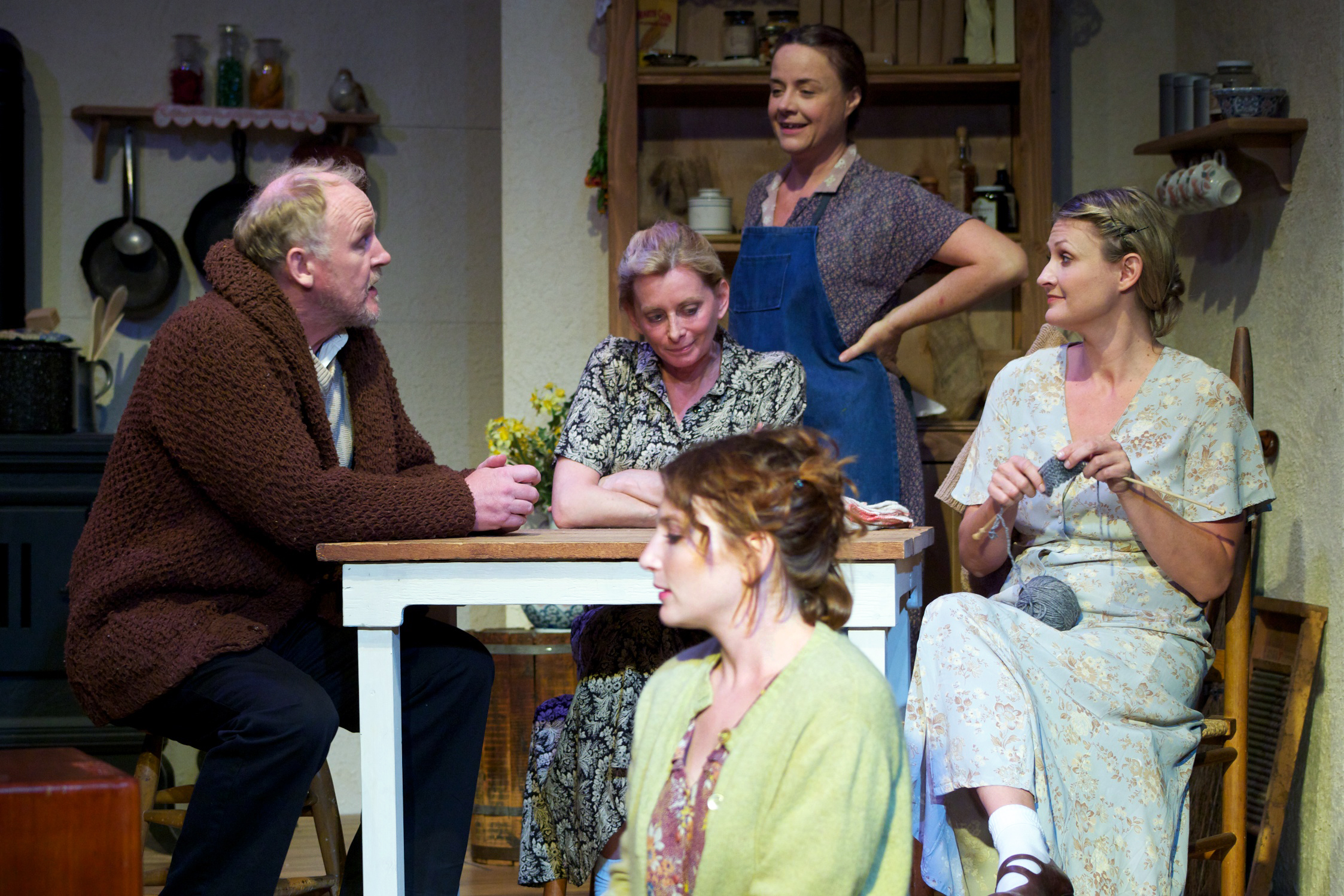A cast of characters that includes five unmarried sisters, a malaria-stricken brother and an illegitimate love child with a constantly disappearing father seems to set a rather sullen tone for the play “Dancing at Lughnasa.”
This rendition of Brian Friel’s 1990 Tony award-winning memory play is set in the summer of 1936 in a village of County Donegal, Ireland.
The illegitimate love child, Michael (Gino Costabile), recounts the last summer of happiness for the five Mundy sisters, Maggie (Andrea Gwynnel Morgan), Kate (Gwendolyn Lewis), Agnes (Suzy Harbulak), Rose (Helen McElwain) and Christina (Molly Leland).
Armed with a wireless radio lovingly named “Marconi,” the sisters enjoy bursts of song and dance during the Festival of Lughnasa, a pagan celebration of harvest in Ireland. However, staunch Catholicism, a scarce dating scene and poverty soon diminish the hopefulness of this music and dancing.
It doesn’t help that their missionary brother, Uncle Jack (Donal O’Sullivan), was kicked out of the colonies for getting malaria and abandoning his Catholic faith or that Gerry Evans (ZackaRya Santoro), Christina’s sometimes-boyfriend and father of her child Michael, appears randomly to ask for Christina’s hand in marriage. And it definitely doesn’t help that the dating scene in the village seems as impossible for the sisters as cruising around on Craigslist Casual Encounters for love.
While the Irish accents veered slightly off-course, the actresses made the sibling rivalries and camaraderie believable. And while the confluence of so many sisters on one stage makes it initially difficult to keep track of them, each actress brought liveliness to their characters. Most notably, McElwain’s Rose provides laughs with her child-like demeanor, as does Morgan’s Maggie, with her salt of the earth-style brusqueness.
Despite having so many characters on at once, the small stage was strangely fitting for the play, adding to the sense of the walls closing in on the dancing sisters’ dreams.
And just when the viewer thinks something good is going to happen, something bad happens in the world of the Mundy sisters. This adaptation of the play takes this vacillating sense of hope and hopelessness into an intimate setting that clearly puts most viewers’ self-proclaimed depressions in check.
Email Jue at tjue@media.ucla.edu.
